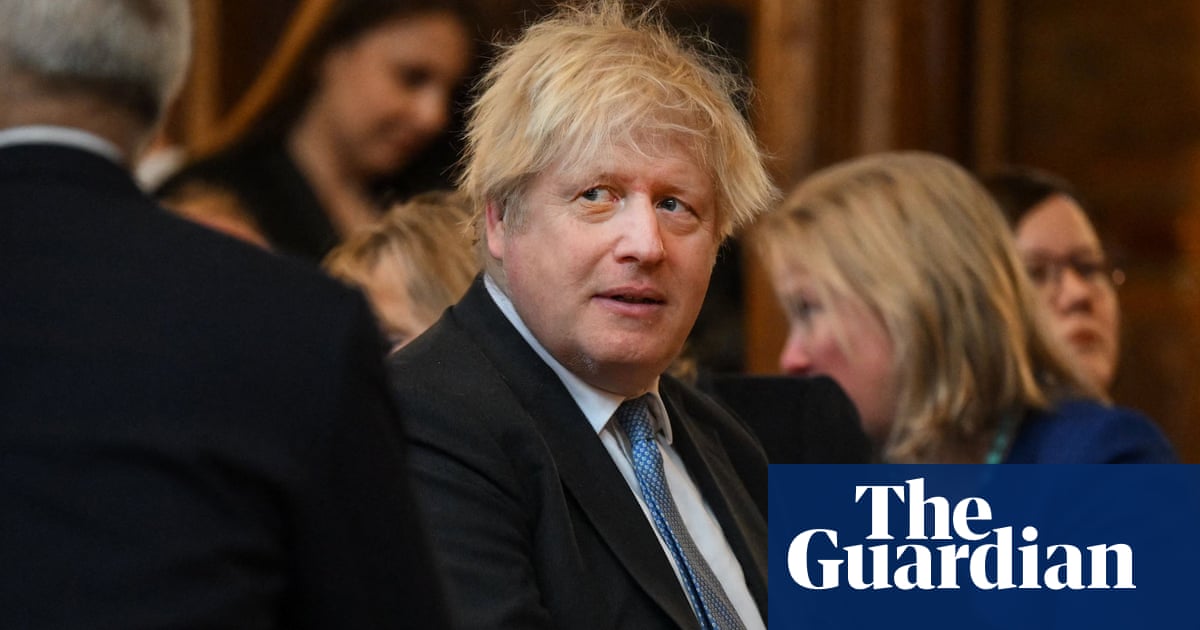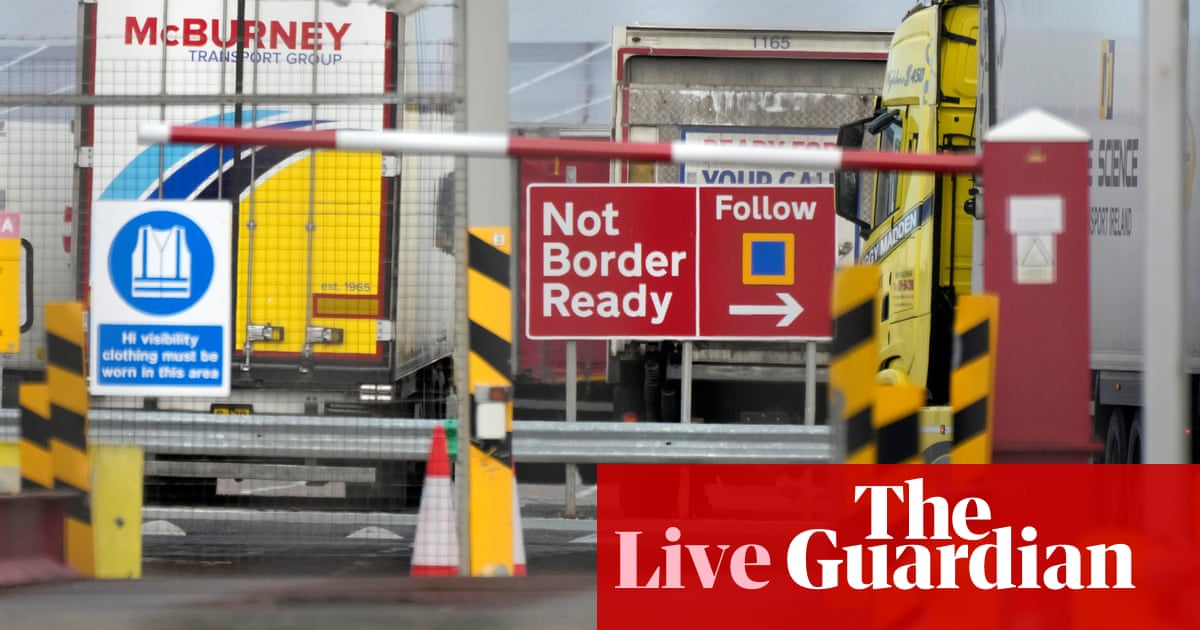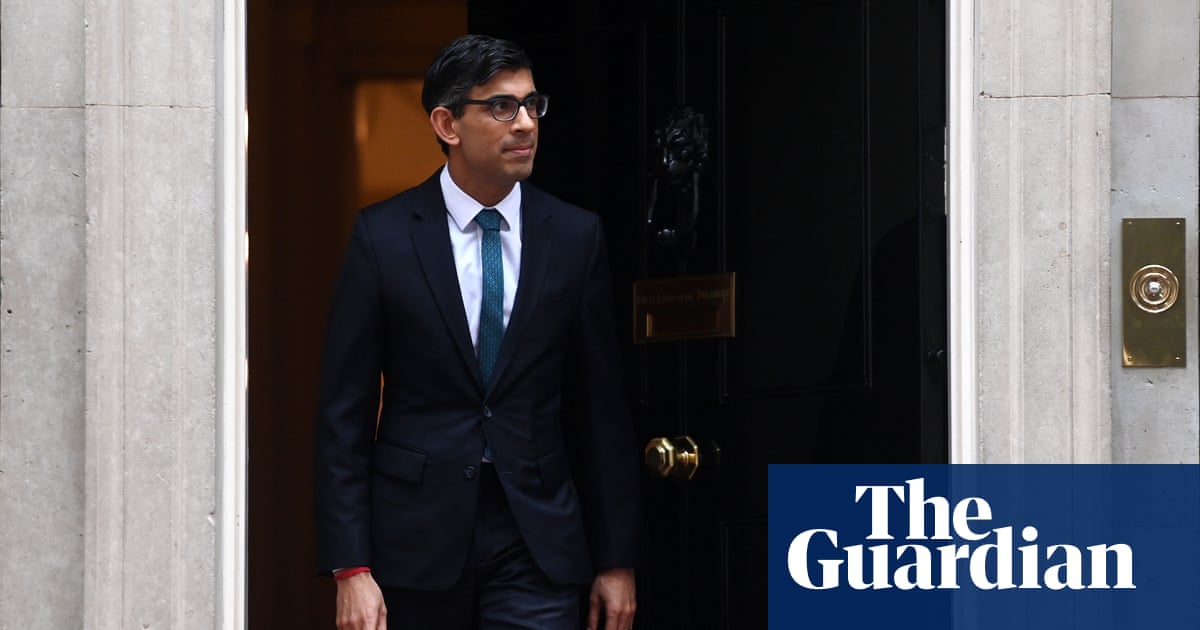
Boris Johnson will vow not to scrap the Brexit deal governing Northern Ireland and instead back reform that has “the broadest possible cross-community support”, in an attempt to cool tensions over the issue.
In a shift in tone before emergency talks in Belfast on Monday, the prime minister will make it clear that he has no intention of scrapping the so-called Northern Ireland protocol, which he claims is causing significant disruption to trade between Great Britain and Northern Ireland.
Officials said that Johnson was intending to deliver a “tough message” to the leaders of Northern Ireland’s parties. He will plead with them to “get back to work”, after the Democratic Unionists blocked the election of a speaker at the Stormont Assembly on Friday. The move means the assembly is unable to function.
DUP leader Jeffrey Donaldson said that his party’s move was a protest at the impact that the protocol was having on trade crossing the Irish Sea. Such goods have a series of checks that have placed a de facto trade border between Great Britain and Northern Ireland. In an attempt to push the DUP into re-engaging, Johnson will say that any action by his government to alter the protocol must lead to all parties coming together to form an executive and assembly.
But after threats by foreign secretary Liz Truss to override large parts of the protocol, the PM is expected to strike a less strident tone. Johnson will tell Northern Ireland leaders next week that “we will always keep the door open to genuine dialogue”, but that there will be “a necessity to act” if the EU does not allow significant changes to the way the protocol is operating in practice. Whitehall insiders also say that any legislation on the issue is some way off, with nothing yet presented to the cabinet.
Johnson will make it clear that the government has never suggested scrapping the protocol and that there will always need to be a treaty in place between the UK and the EU that prevents a hard border on the island of Ireland. He will also recognise the need to protect the integrity of the EU single market.
However, he will call for reforms to deal with the trade issues that UK government figures say is imperilling the Good Friday agreement. Critics say that repeated threats to the protocol by UK figures have caused far more significant dangers to the historic agreement.
It comes as the US takes a close interest in the treatment of Northern Ireland. President Biden last week urged Johnson not to rip up the Northern Ireland protocol. A powerful delegation of US congress representatives is also due to fly to London within days, in another sign of concern in the White House.
Johnson will claim there is “no disguising the fact” that the delicate balance of the Good Friday agreement has been upset by the protocol. He will call for the UK and EU to have the “shared objective” for the trade rules in Northern Ireland to enjoy “the broadest possible cross-community support” when they face a consent vote in the region’s assembly in 2024.
On Saturday Labour accused the prime minister of trying to provoke a trade war with Brussels that would exacerbate the cost of living crisis already hitting households. David Lammy, the shadow foreign secretary, said that the repeated sabre-rattling over the Northern Ireland protocol came at “the worst possible time”.
“Instead of finding practical solutions they are planning a trade war in a cost of living crisis,” Lammy told the centre-left Progressive Britain conference. “Making Brexit work takes statecraft, diligence and graft, not Boris Johnson’s wrecking ball. People in Northern Ireland deserve a responsible government, but instead we have a prime minister who can’t be trusted and a government willing to break international law.
“And this comes at the worst possible time. Europe is facing the most serious security crisis in a generation. There is a war on our continent. Millions have fled their homes. Countries have pulled together in support of Ukraine. It is wrong, short-sighted and ill-judged to seek divisions with our European allies as we face this common threat.”












